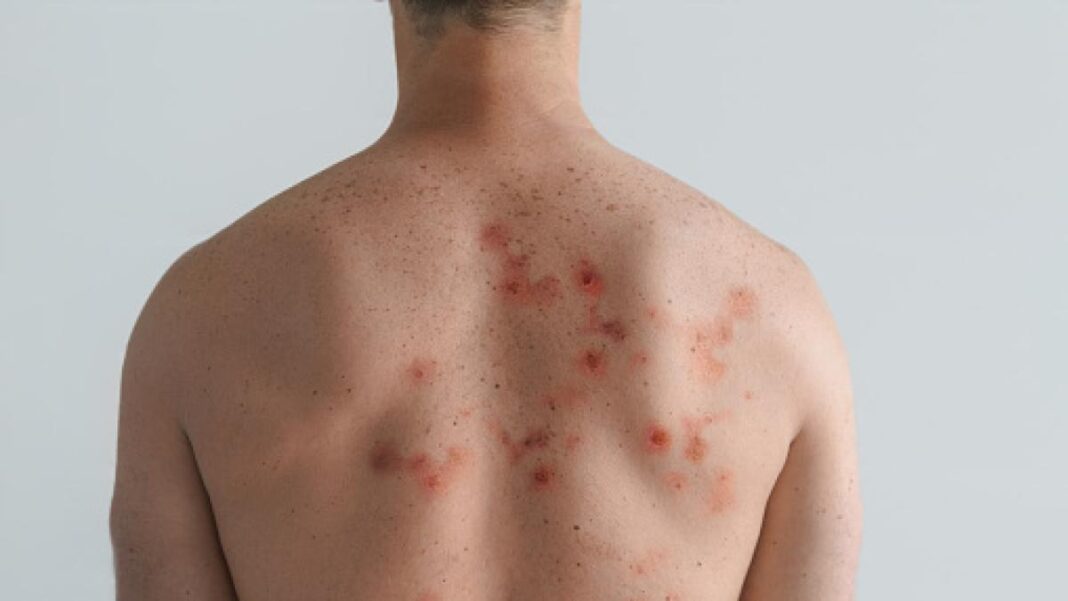BTN News: The World Health Organization (WHO) has declared mpox, commonly known as monkeypox, a public health emergency of international concern for the second time. This alarming move comes as a virulent strain of mpox continues to spread rapidly across multiple countries. WHO’s Director-General, Dr. Tedros Adhanom Ghebreyesus, acknowledged the gravity of the situation after the Emergency Committee advised that the current outbreak meets the criteria for an international public health emergency. The rapid spread of this virus is causing significant concern worldwide, particularly as memories of the COVID-19 pandemic remain fresh. Many are now questioning whether the world is adequately prepared to deal with yet another infectious disease that has the potential to cause widespread disruption.
Since the beginning of 2024, the mpox virus has been confirmed in over 15,000 cases across Africa, with the virus affecting at least 16 countries, six of which have reported cases in just the past 10 days. Countries currently battling this outbreak include Burundi, Cameroon, Congo, Ghana, Liberia, Nigeria, Rwanda, the Democratic Republic of Congo, South Africa, Uganda, and Kenya. The swift spread of this virus has heightened fears globally, echoing the early days of the COVID-19 pandemic. Virologist Cherly Walter reminds us that while viruses can mutate rapidly, the mpox virus typically mutates more slowly. However, the situation is still evolving, and the implications of these genetic changes are not yet fully understood.
The current mpox outbreak is especially concerning due to the characteristics of the strains involved. There are two primary types of mpox: Clade I and Clade II. Clade II, which has a lower mortality rate of approximately 0.1%, is generally less dangerous. However, many of the current cases are attributed to Clade I, which has a significantly higher mortality rate of 3% to 4%. This means that three to four out of every 100 infected individuals could die from the virus, with children being particularly vulnerable. Comparatively, the fatality rate for COVID-19 was about 1.2% at the time it was declared a public health emergency.
One of the major challenges in combating mpox is the relative lack of research on the virus. Unlike COVID-19, which quickly became a focal point of global scientific efforts, mpox has historically been under-studied, primarily because it was previously considered a rare disease with few cases reported annually. This lack of research means that scientists are still trying to understand how genetic changes in the virus may be contributing to its current spread and whether the circulating variants are becoming more dangerous.
The mpox virus spreads through close contact, including sharing utensils, dishes, towels, or bedding. Its incubation period can range from 5 to 25 days, meaning individuals may unknowingly harbor and transmit the virus for a significant period before symptoms become apparent. Early symptoms are often mild, including swollen lymph nodes, fever, and fatigue, which can easily be mistaken for other common illnesses such as colds, flu, or even COVID-19. The characteristic rash associated with mpox usually appears later, which complicates early detection and containment efforts, particularly in children, where it might be confused with chickenpox.
To prevent this outbreak from escalating into a full-blown global pandemic, several urgent measures need to be implemented. Testing is the most critical tool in controlling the spread of the virus. It is essential to identify and trace cases early to limit further transmission. Simple lateral flow tests, which involve swabbing the nose or throat, can deliver results within 30 minutes and should be widely used.
Moreover, clear and accurate messaging is crucial to inform the public about the symptoms of mpox and the actions they should take. During a previous outbreak in 2022, many public health messages were incorrectly targeted solely at sex workers and gay men, leading to the false belief that the virus was only sexually transmitted. This misconception has since been debunked, as women and children are also contracting the virus. Comprehensive public education efforts are needed to ensure that communities are aware of the risks and know how to protect themselves.
Vaccination is another critical component in the fight against mpox. The smallpox vaccine, which can also protect against mpox, remains in short supply. Currently, only 200,000 doses are available for African countries, far below the estimated demand of at least 10 million doses, as per the African Centers for Disease Control and Prevention. The WHO is calling for the rapid approval and distribution of candidate vaccines, similar to the expedited process seen during the COVID-19 pandemic.
The urgency of these interventions cannot be overstated. The global community must act swiftly and decisively to contain this outbreak before it has the chance to develop into a pandemic. Every delay in testing, vaccination, and public education increases the risk of the virus spreading unchecked, leading to more deaths and potentially more dangerous mutations. With the right strategies in place, it is still possible to bring this outbreak under control, but time is of the essence.


